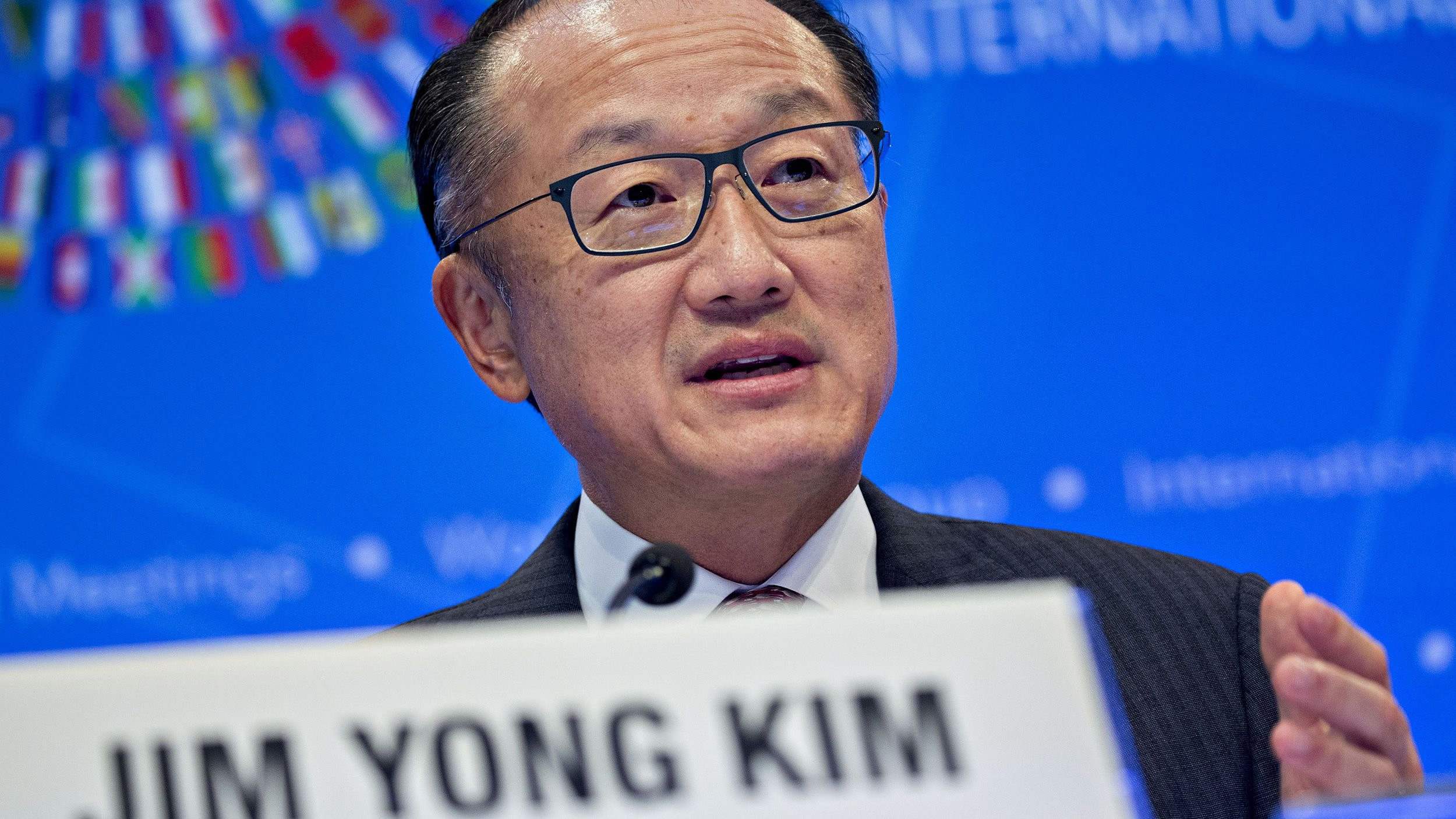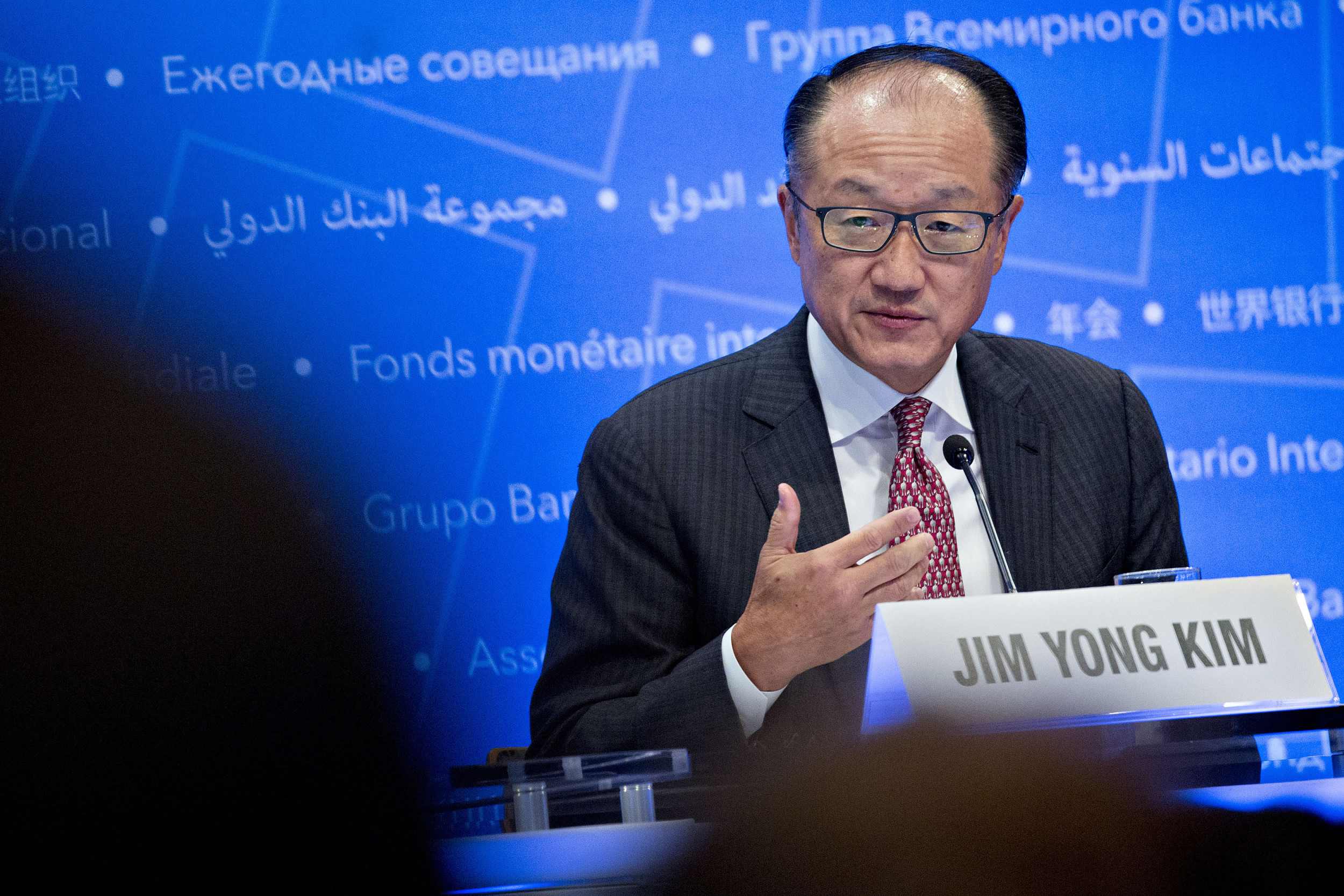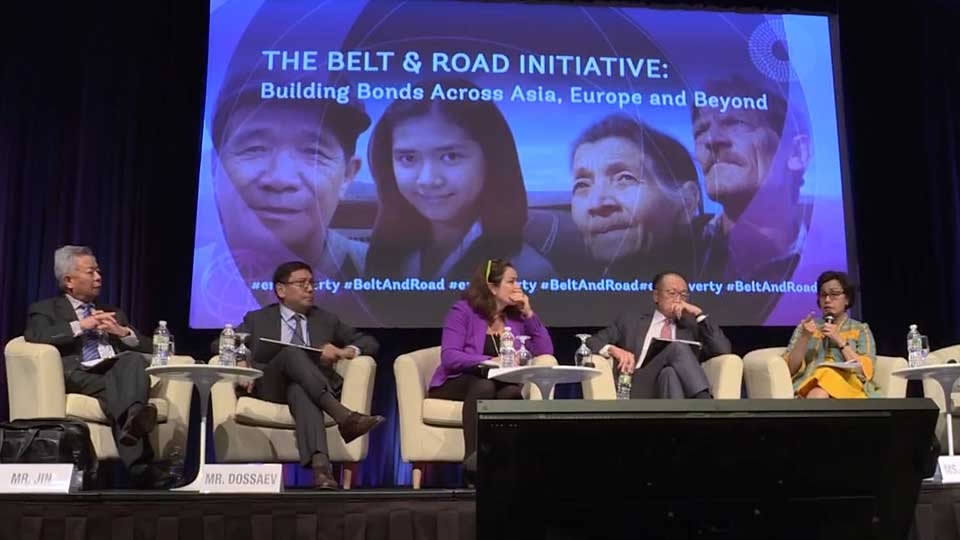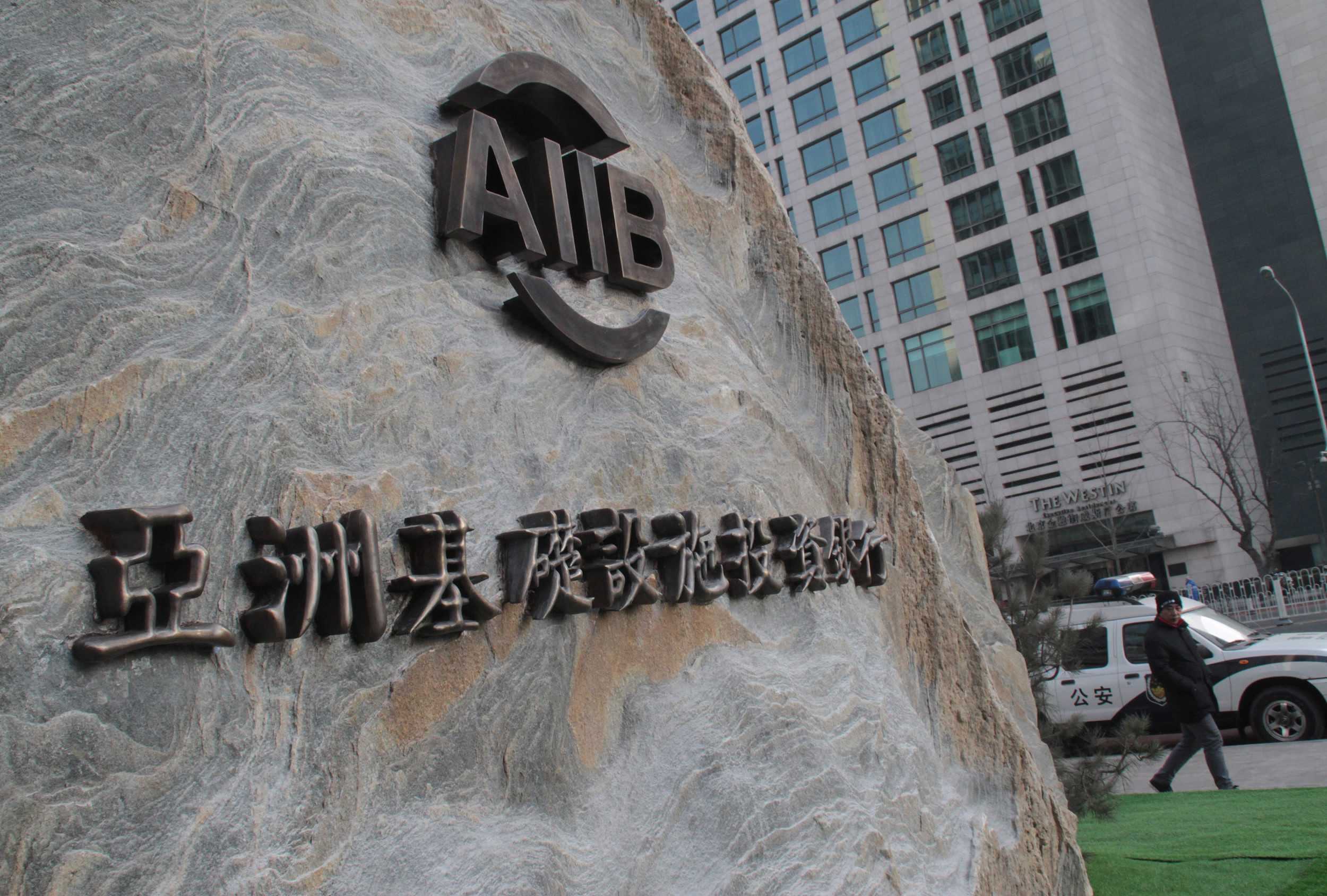
Business
17:33, 13-Oct-2017
World Bank chief rejects US criticism of China lending
by Nicholas Moore

World Bank President Jim Yong Kim defended his institution’s lending to China on Thursday, deflecting attacks from the White House in another example of the US administration’s disdain for multilateralism and apathy towards Beijing’s contributions to international development.
Kim told media “the rationale for us working in China is quite clear: Not only are we helping them along the development path but the lessons we learn in China... are very helpful to our work in other developing countries.”
The World Bank chief had been forced to respond to comments from the US Treasury department, which suggested too much money was going to countries “that already have ample borrowing capacity.”

VCG Photo
VCG Photo
The Financial Times reported that if the World Bank did not accede to the US demands to adjust its balance sheet, the Trump administration will hold out on a capital increase for the lender. This would not be the first time the Trump administration has threatened the World Bank – in March, the president unveiled a budget that included contribution cuts of 650 million US dollars over the next three years.
Scott Morris, a former US Treasury official during the Obama administration, told CNBC that the US was losing out to China in terms of soft power, saying “You have a China that is looking to showcase its multi-trillion dollar 'Belt-Road' initiative with very high-profile events and then you have American officials who want to say no to everything: No to ambition at the World Bank, no to trade agreements.”
The Trump administration’s latest attack on the World Bank comes as the US pulls out of UNESCO, and follows months of rhetoric against multilateralism, the UN, NATO and other international bodies and agreements. While the president may feel he is scoring political points at home with core voters, Morris told CNBC that the US was becoming “increasingly isolated” on the international stage.
Some observers say the US stance also fails to recognize the contributions China has made to international development in recent years. The Belt and Road Initiative – an enormous infrastructure development project spanning across Asia and even further – has been a highlight at this week’s IMF-World Bank meetings in Washington.
Jim Yong Kim said that the initiative represented “strong leadership and an embrace of multilateral approaches to solving difficult problems.”

The Belt and Road has been one of the key discussion points at this year's IMF-World Bank meetings. /CGTN America Photo
The Belt and Road has been one of the key discussion points at this year's IMF-World Bank meetings. /CGTN America Photo
One of the biggest concerns for the World Bank is that without sufficient support from its biggest contributors, China’s Asian Infrastructure Investment Bank will take over its role in leading global development, leaving the US-founded institution with little influence.

VCG Photo
VCG Photo
A report released Wednesday by AidData found that China was on course to overtake the US as the world’s primary donor of aid to the developing world, with China committing over 350 billion US dollars to international development projects between 2000 and 2014, compared to 394 billion US dollars from Washington.
With Trump showing no sign of retreat on his “America first” policy, and the evolving Belt and Road Initiative set to grow further in the next decade, China is set to overtake the US and gain soft power and global credibility – AidData’s report concluded that “Chinese aid substantially improves economic growth” of recipient countries.

SITEMAP
Copyright © 2018 CGTN. Beijing ICP prepared NO.16065310-3
Copyright © 2018 CGTN. Beijing ICP prepared NO.16065310-3